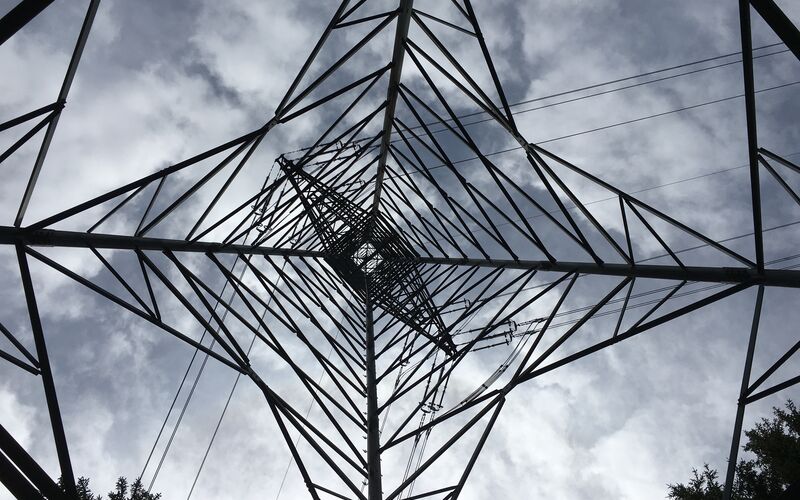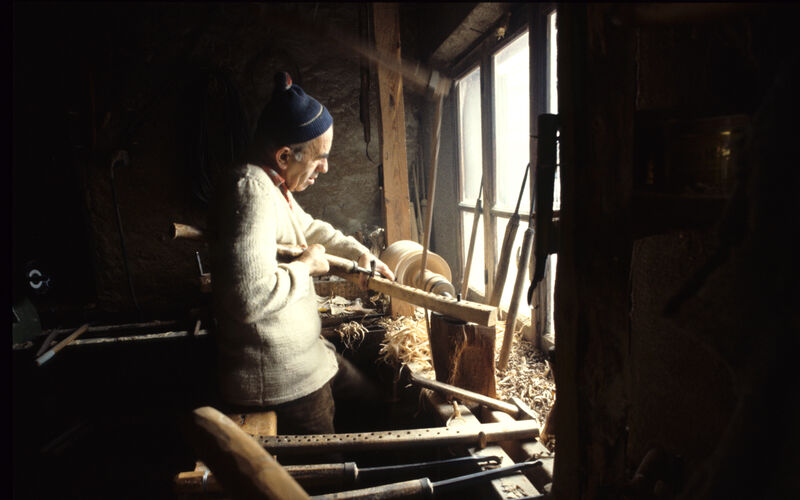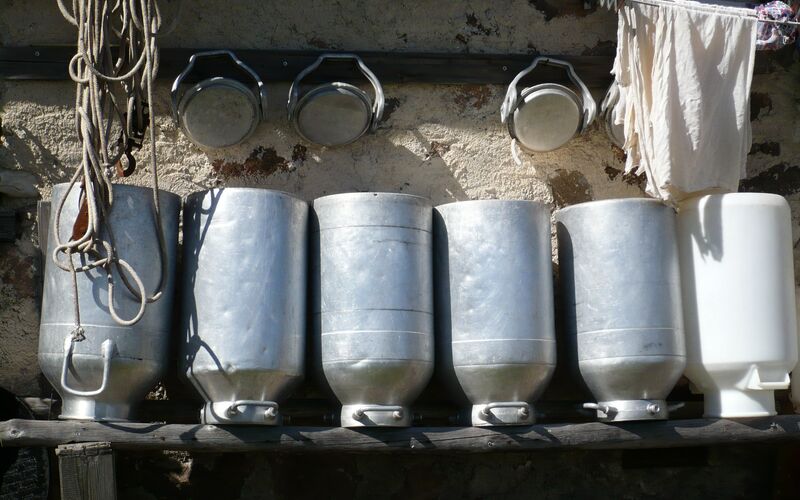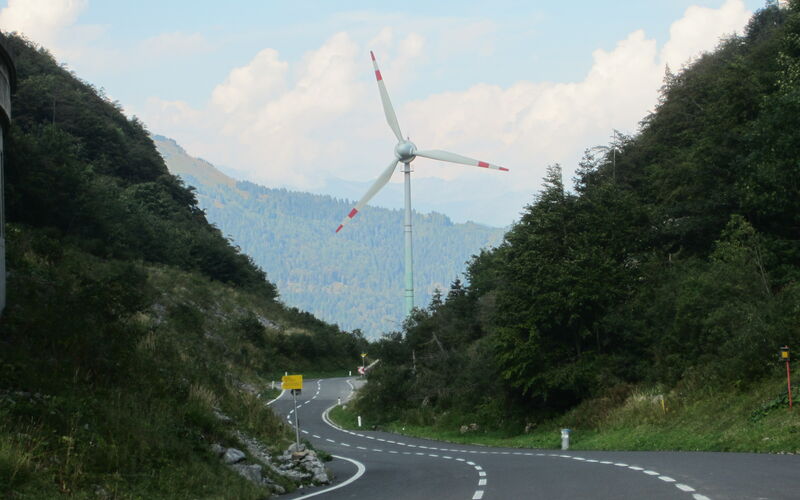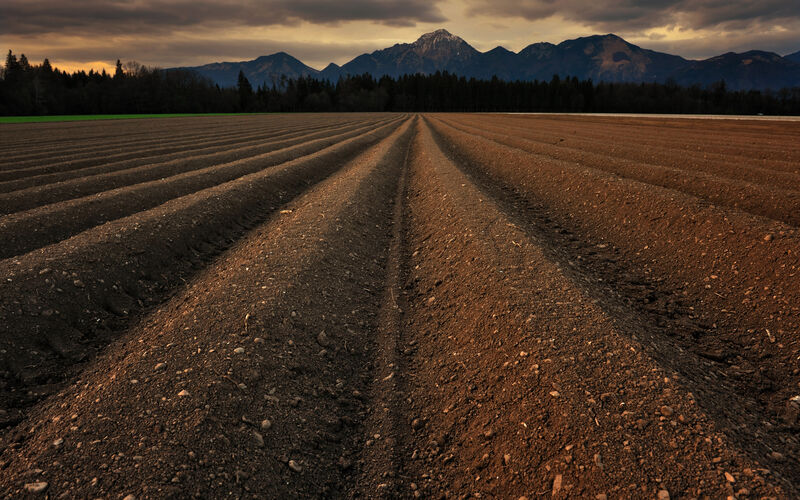An economy for people and nature
What does a Green Economy mean to you?
A green economy is energy efficient and low carbon; resource efficient; based on ecosystem services and natural capital; and an economy that supports quality of life and wellbeing.
Most of the 17 UN Sustainable Development Goals (SDGs) are relevant for a green economy, e.g. SDG 8 on decent work and economic growth, SDG 9 on industry, innovation and infrastructure, and SDG 12 on responsible consumption and production.
A resource-efficient economy is key to a sustainable future in the Alpine region, because resources, such as water, wood, soils, in the Alps are already under immense pressure from climate change, land use change, and human activities.
An energy-efficient Alpine region is one that balances renewable energy production with increasing energy savings and efficiency, especially for transport and buildings. This is crucial because available land is scarce, and energy production can negatively impact nature and landscapes as well as activities such as mountain agriculture.
Finally, a green economy depends on Alpine inhabitants, their diversity, knowledge, and potential for innovation. A successful transition to a sustainable Alpine economy depends on acceptance by and participation of communities.
Forests play many important roles in the Alpine region including supporting biodiversity and unique species. They store and filter water, contribute to climate change mitigation, protect against natural hazards and help preserve the unique Alpine nature. Mountain forests also produce renewable materials and offer a source of employment and income for local communities.
These forests are not only crucial for a healthy natural environments; they also offer many recreational and health benefits for us. Moreover, forests are not only home to iconic Alpine plant and animal species, but are integral to the unique landscapes that are appreciated by inhabitants and visitors alike.
Forests are therefore a vital resource for the Alpine economy, contributing to key sectors such as tourism and silviculture. The Alpine countries strive to maintain mountain forests’ vital protective and economic functions, and they set out this commitment in the Alpine Convention’s Protocol on Mountain Forests.


Young people are the future. They will build and live in tomorrow’s world and are therefore at the heart of a sustainable, green Alpine economy.
In the field of research and innovation, input from and involvement of young professionals is particularly important, helping to shape the future of the Alps. The Alpine Convention established the Young Academics Award to recognise the crucial role young researchers play. It rewards outstanding master’s theses on relevant Alpine topics.
Youth involvement in politics is another essential foundation of sustainable development. The Youth Parliament to the Alpine Convention (YPAC) was founded in 2006 to bring together young people from different regions of the Alpine countries in a parliamentary situation. They meet and operate as a real “parliament” and discuss current topics regarding the Alps. The YPAC offers insights into parliamentary structures as well as pressing Alpine topics like soil protection, climate change or the Sustainable Development Goals (2020). Moreover, it is a platform for knowledge exchange and networking among young people from different cultural backgrounds.
Sustainable mobility is also an important topic for younger generations. The Youth Alpine Interrail – short Yoalin – project selects 100+ young people each year to travel sustainably across the Alps by means of public transport.
The Alps are one of the most important areas for tourism and leisure in Europe. They offer numerous leisure activities, a rich variety of landscapes and diversity of ecosystems.
An example of sustainable tourism in practice is the Mountaineering Villages initiative. They stand for sustainable mountain tourism in the Alps and are committed to the preservation of local cultural values. By aligning themselves with more sustainable forms of tourism, the Mountaineering Villages aim to increase the positive effects on agriculture, local supply, public transport and population development. Visitors take personal responsibility to behave in an environmentally conscious and responsible way in the mountains
Mountain agriculture is still an important basis of life in the Alps. It supplies the Alpine region with food - and also plays a fundamental role in shaping the Alpine landscape. It preserves traditions and knowledge. Many things have been handed down for centuries, such as the tradition of transhumance, i.e. transhumant pasture farming. Every year, thousands of sheep are driven from the Vinschgau and Schnalstal valleys in South Tyrol over 3,000-metre-high mountains, sometimes over glaciers, to the lush alpine meadows in the Tyrolean Ötztal. This transhumance has also been included in the UNESCO Intangible Cultural Heritage List.
Due to the topographical nature of the Alps, practising mountain agriculture is not an easy task. Mountain areas are characterised by the limited availability of arable land, by steep slopes where cultivation is particularly labour-intensive, and by sparse infrastructure in more remote areas. Migration from mountain areas to the cities and the valley floor puts additional pressure on mountain farming. However, mountain farming is only ever a complement to large-scale farming in the flat areas of the foothills of the Alps or in the lowlands,
Our glorified image of mountain farming shows romantic flower-filled meadows with sheep and cows grazing on the Alpine pastures. In reality, however, it is characterised by hard work.
Extensively used Alpine meadows have a particularly high biodiversity, and mountain farming has great potential if it is designed to produce high-quality and ecological products.



